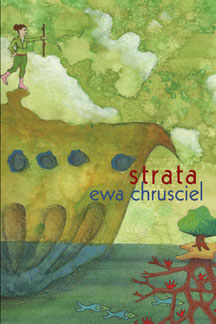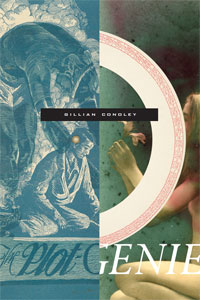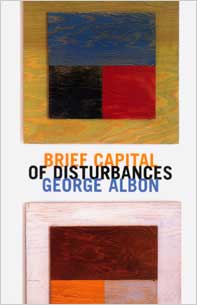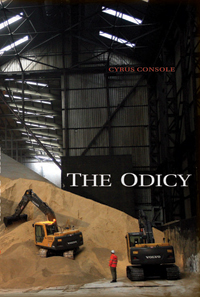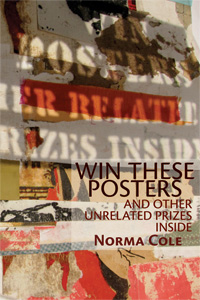Description
Revised & Reprinted Edition
In Ewa Chrusciel’s first book in English, Strata, an exile’s memories are so overcharged that they explode into “dots. We are burying them every day. We are burying them in staccato rhythm. They rise and accrete. They beat electric letters in the air.” Magicalized by an enormous nostalgia, these memories are at once a rapture of possession (of being possessed) and defeatingly untotalizable. There are no connectives, the dots just won’t add up. Even so, Chrusciel’s striking sentences keep intermingling in ever-changing permutations, as if seeking a crystallizing formula. Strata is at once a tumultuous revelation of how much of the past there still is, right here in the near flight of letters, and of the burn of being in time at all, the difficulty of catching up with oneself in a universe that is never one, but always scattered. Strata is a book of concuspiscences, of combings for pleasures, yes, but even more for the Sacred Book it wants to be. In its every line, it shows that the rhapsodic is the right approach to the truth about the world.
Calvin Bedient
There’s a lot at stake emotionally for Chrusciel to try collect the details of her life, turn them around and upside down, and as other poet-memoirists (besides Hejinian, Dunya Mikhail, Etel Adnan, and Fanny Howe all come to mind), Chrusciel creates a gorgeous weave of experience, informed by both narrative and lyric by always returning to previous pieces, creating a mosaic-like or symphonic effect. […] As in Adnan’s and Hejinian’s texts, this experience of multiplicity necessarily replicates for the reader the experience of being an immigrant writer, a multi-lingual writer creating poems in her new language. […] A powerful, multi-valenced work, it deserves closer and sustained study.
Kazim Ali, Field
With a wonderful insistence, each phrase in Ewa Chrusciel’s prose poetry can be experienced as a moment of transition, of what Emerson would have called a darting aim. “Whenever we visited, my grandfather would put his chair on the road and wait,” Chrusciel writes. “Kraina na Bosaka. We were the apparition of deer. Pray, why chase each stalk of wounded light?”
Tony Brinkley, Boston Review
There is a whiff of Grimm here and a waft of Simone Weil, but the lingering trail is from regions whose fauna and fleur, Dybbuks and baobabs, have drifted into a birthday party where children tap roots and nibble onions and conjure ancestral questions: “What is our life but wonder expressed in palpitating syllables?” (59). A finger poked in the ear is rewarded with the pulse of “cambium cells” and “blackened combs of honey,” past which stroll syntactic maidens with a “backpack full of bees” (58; 61).
Amy Wright, Rain Taxi
About the Author
Reviews
Excerpt
Ewa Chrusciel is a bilingual poet and a translator. Her other books in English are Contraband of Hoopoe (Omnidawn) and Of Annunciations (Omnidawn). She has also published three books in Polish: Tobołek (2016), Sopiłki (2009), Furkot (2001). Her poems have appeared in numerous journals and anthologies in the US, Italy, and Poland, such as Boston Review, Jubilat, Colorado Review, Laurel Review, Spoon River Revie, Solstice, Il Giornale, and La Freccia et Il Cerchio. She is an associate professor of creative writing and poetry at Colby-Sawyer College in New Hampshire.
In Ewa Chrusciel’s first book in English, Strata, an exile’s memories are . . . at once a tumultuous revelation of how much of the past there still is, right here in the near flight of letters, and of the burn of being in time at all, the difficulty of catching up with oneself in a universe that is never one, but always scattered.
Chrusciel’s moments of transition, marking the passage of time, become the indices of both what is lost and what accretes. . . . Perhaps what is most noteworthy about Chrusciel’s beautiful poetry is the way it constitutes the reader’s experience, how it makes us feel the force in what we may not yet be thinking.
na no la
They come as yellow secrets. They bilocate. They are ubiquitous as Tartar cheeks. They air the air. We bury them. They hover as hummingbirds, calculating their rates of return. They come in volcanic lavish. They come in lekking crowds. They come as juncos. They perch on branches like monk hedgehogs. The come as seven foxes jumping to meet innocence. They tingle. Sorrelic apparitions. They speck in the morning. They thistle. There is a tigress mother wanting to trim your hair. They come in high-strung beads and scatter into our vessels. They dot. They come as hard-faced dybbuks. They are relics of grief and light. They re-colonize. They want to rent one line. They rap on our door with churned up grains, tides, whispers. They come as drafts of juniper. They spread on the floor as a cross. We bury them. They come in black chadors. Rising and swaying parasols. Thin as grass. They come as silver jaguars. They want to breakdown. They come to insulate us with snow. Do you hear them? They try to get where they belong. With forget-me-nots. They have fancy hats. They pebble across the floor. They fall from marigold trees and lie crucified on the road. Get up and sing. We are burying them in staccato rhythm. Others – miniscule kisses. Some as heavy footsteps. We are burying them. They rise and accrete. They trespass. They beat electric letters in the air. They come to us. They come with swinging hips. They come as minnows. They come in wrinkles. They come as a host of molecules. They swarm into this lighthouse. They pinch like too much love. They hop always to a higher branch. They come invincible. They come to torture. They come to soothe. They come for romance. They flip and tremble tiny farewells. They come as mustards seeds. Do you see them in a mulberry tree? They slide down the needles. They come as growth on wolf trees, the dead winking. They air the air. They come to forgive. They ask for forgiveness. They come as hyphae. They come as hostages. They come as clogged streets. They come in slow trains. Burning bushes, doves, manna, the blood of horses’ necks. They come as purgatory souls. They chip off the wall. In loops and whorls. They come in giggles. They come in almonds. They come to eye us, inside our panther skins.
^ back to menu

